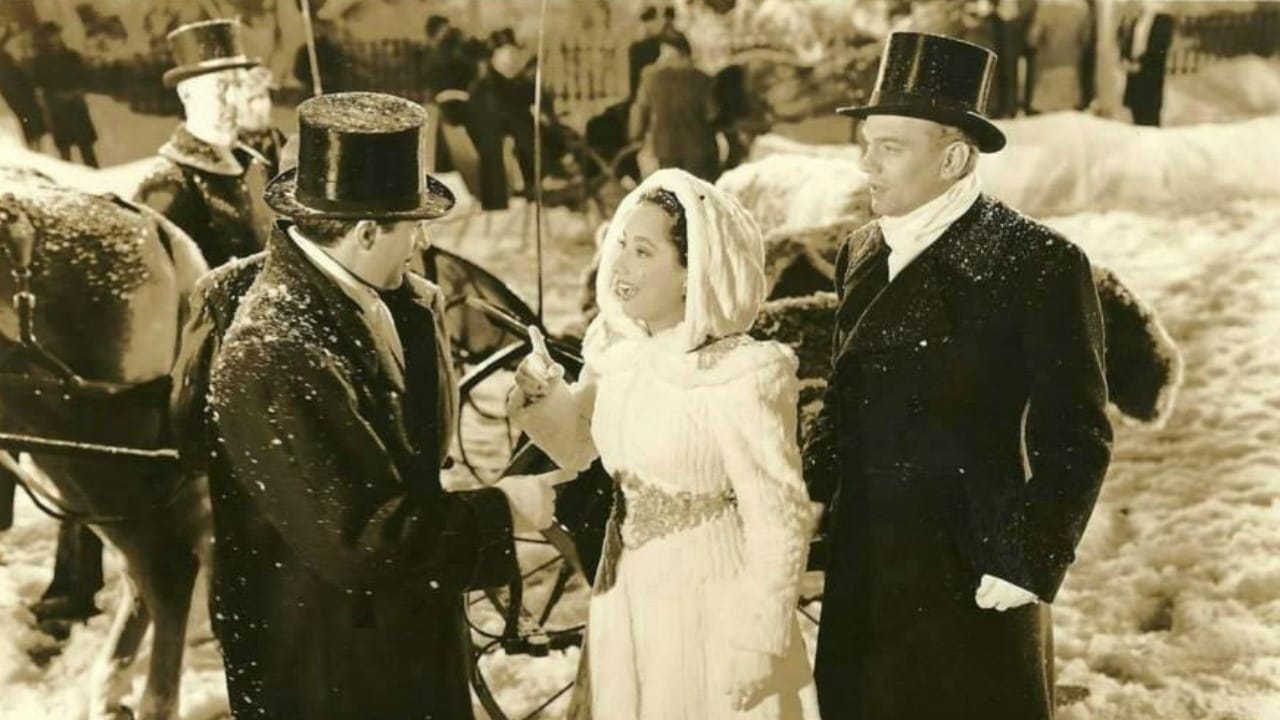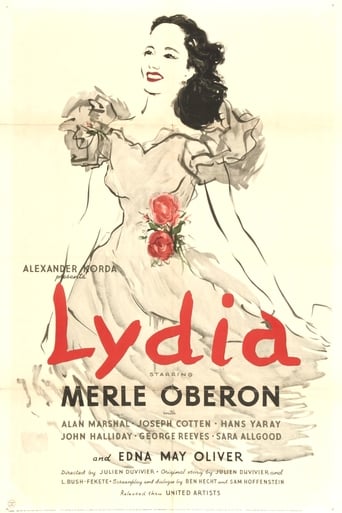

Lack of good storyline.
... View MoreTells a fascinating and unsettling true story, and does so well, without pretending to have all the answers.
... View MoreIt’s sentimental, ridiculously long and only occasionally funny
... View MoreAll of these films share one commonality, that being a kind of emotional center that humanizes a cast of monsters.
... View MoreFor a melodrama with a modest budget, this production is surprisingly sophisticated. You may find the story somewhat plodding, particularly in the first half, but after Lydia discovers her true calling in helping blind children, the cinematography takes on some striking symbolism. You can further appreciate the attention to detail in some of the sets and costumes, particularly when attention is drawn to darkness.Consider that this film was made in 1941 as the U.S. was poised to enter the war already raging in Europe, and women would soon be compelled to work and sacrifice. The romantic repression of Lydia thus seems irrational in context, and the ending suggests as much. It pre-dates the Hollywood work of Sirk, who would critique American clichés in his great '50s films, and similarly exposes some of the delusions of masochistic romance.
... View MoreAfter dedicating a home for blind and crippled children, doddering old Merle Oberon (as Lydia MacMillan), who never married, attends a surprise gathering of her old boyfriends. The reunion is arranged by physician Joseph Cotten (as Michael Fitzpatrick). The son of Ms. Oberon's family butler, Mr. Cotten has also invited blind musician Hans Jaray (as Frank Andre) and future "Superman" George Reeves (as Bill Willard). A fourth beau, seafaring adventurer Alan Marshal (as Richard Mason) may or may not appear. He is one of the story's mysteries, so stay tuned. Oberon and her old suitors reminisce about their romances, in flashbacks beginning in 1897, when "the prettiest girl in Boston" was a desirable young maiden..."Lydia" is a re-make of director Julien Duvivier's "Un carnet de bal" (1937), re-fashioned entirely for star Merle Oberon by producer Alexander Korda. The original French export was a worldwide hit, with Mr. Duvivier and his remarkable original players receiving much critical acclaim. There are some significant changes in the story, but they do improve the central played by Mrs. Korda (Oberon). She is the reason for the picture, clearly. An impressive group was hired for this motion picture; their skills are intermittently evident, but the totality of the film is far too pretentious...Watch "Lydia" for the production values and moments of perfection. You'll find much of the latter in the work of supporting actress Edna May Oliver (as Sarah "Granny" MacMillan). This was the last appearance of Ms. Oliver, a classic character actress who became the most valuable player nearly every time she appeared on screen. Oliver's character appears in the flashbacks, as Oberon's wealthy and outspoken grandmother. She complains about mysterious internal ailments, but is considered a hypochondriac. The veteran actress died in 1942, of internal ailments. In real life, Oliver passed away peacefully in her sleep. On screen, she plays her expiration scene with Shakespearian majesty. This is how it should be done.****** Lydia (9/18/41) Julien Duvivier ~ Merle Oberon, Joseph Cotten, Edna May Oliver, Alan Marshal
... View More"Lydia" from 1941 is a remake of Jacques Duvivier's 1937 'Un Carnet De Bal.' It retains the same plot and here is remade by Duvivier himself.Lydia MacMillan (Merle Oberon) is an old but still vital single woman who is visited by four ex-suitors: Michael (Joseph Cotton), Hans (Frank Andre), and Bob (George Reeves) who reminisce with her about the old days and how much they all loved her and wanted to marry her, and how, one way or another, it just didn't work out.It turns out that Lydia, from a good Boston family, only had one great love, Richard (Alan Marshal), who, after a few days together (during which I think we are to assume she lost her virginity) takes off in his boat. He leaves her a "Dear Jane" letter, stating that he'll be back after he clears things up with a woman who "has a claim on him." He gives her his grandmother's wedding ring and says he will keep sending her rings until he returns. She hears from him sporadically but she never sees him again.She can really never let go of her love for him, so she remains single, and devotes herself to her work with blind children, who attend a school she set up.In 'Un Carnet de Bal," the character is widowed and wonders how her life would have been had she married the other men who were in love with her, the men who danced with her one night that changed her life forever.The angle of "Lydia" is a little different and probably a little deeper. But it's still a film about nostalgia, youth, and disenchantment.Edna Mae Oliver plays Lydia's grandmother, and she's wonderful in this, her last film. She died the following year at the age of 59. People probably thought she was 75.Merle Oberon gives a lovely performance as Lydia, both as a young woman reveling in her beautiful gown, dancing, and being young, and as an older woman reminiscing. She tells each of the men that none of her really loved her because they never knew her; Michael loved "an angel," Hans, the blind composer/pianist she meets loved "the blond, blue eyed girl" described to him by a child whom he asked to describe Lydia and instead, she describes her doll; and Bob loved the young, wild thing that was ready to elope with him. Richard was the only man who truly knew her, and with him, she was herself. Or so she believes.Duvivier did the best he could with this Americanized version, but it can't live up to 'Un Carnet De Bal' with its French sensibility.Nevertheless, pleasant and worth seeing. A bittersweet story of a woman looking back on her life. We all do it at some point.
... View MoreWell, as soon as we see that Joseph Cotten and Edna Oliver are in this, we know it won't be a bad film... it was nominated for best Music in a drama, but The Devil and Daniel Webster won it that year. Lydia (Merle Oberon) and Michael (Cotten) meet up in their later years, and reminisce about the past, which we always seem to remember as better than it was. Edna Oliver is (once again)the overbearing, frumpy grandmother who is very set in her ways, and is determined that Lydia will only be with a proper gentleman.Lydia and her old beaus talk about "the grand ball" they had attended in their youth, with the harps, mirrors, and chandeliers, which everyone remembers differently. Then, we flash back to the glorious football game, on which they also disagree. We flash forward, then backward, and forward and backward, and its all a lot of work to keep up with where we are now. It's all done competently, but there are no sparks between her and the men from her past, and its a little like reading a history book. It just seems to be a lot of talk about being in love way back when. Then, about halfway through, Lydia meets up with a little boy who changes her life. Then we find out how Lydia got to where she is today. It's entertaining enough, but not one of my favorite films. Produced by Alexander Korda, who happened to be Oberon's hubby at the time.
... View More